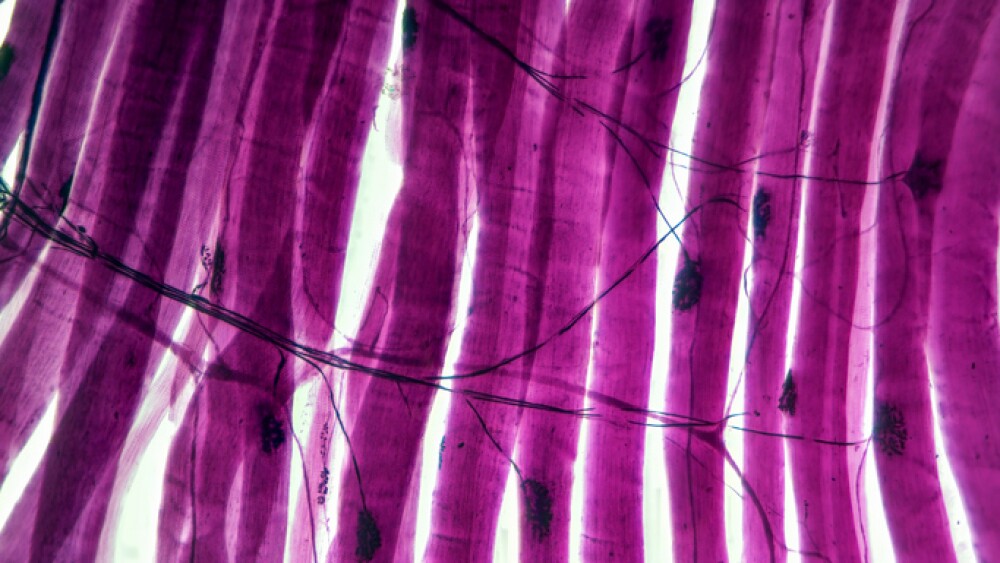Ironwood Pharmaceuticals, Inc. (Nasdaq: IRWD), a GI-focused healthcare company, today announced that the company and its collaborators will present clinical data for IW-3718, and both clinical and non-clinical data for linaclotide during Digestive Disease Week (DDW) being held in San Diego, CA, May 18 through May 21, 2019.
During an oral presentation, Michael Vaezi, M.D., Ph.D., of Vanderbilt University will share Phase IIb data on the effect of IW-3718 on a spectrum of symptoms associated with persistent gastroesophageal reflux disease (GERD) despite treatment with proton pump inhibitors (PPIs). Additional data will be presented in poster sessions highlighting the prevalence and significant burden of illness for patients living with persistent GERD, as well as the development and validation of a patient-reported outcome instrument to measure treatment benefit in clinical trials of persistent GERD.
IW-3718 is being evaluated in Phase III clinical trials for the treatment of persistent GERD, a condition affecting an estimated 10 million Americans who continue to suffer from heartburn and regurgitation despite receiving treatment with PPIs, the current standard of care. Bile acids, which are produced in the intestine and play an important role in the digestive process, have been implicated as contributors to GERD symptoms.1,2
With regard to linaclotide, data will be featured in a poster of distinction which introduces a new patient-reported outcome (PRO) measure developed for the abdominal symptoms of IBS-C, called the Diary for Irritable Bowel Syndrome Symptoms—Constipation (DIBSS-C). The DIBSS-C is being used in an ongoing Phase IIIb study that is evaluating the efficacy and safety of linaclotide 290 mcg on multiple abdominal symptoms including pain, bloating and discomfort in adult patients with IBS-C.
In other poster sessions, researchers will present data on the expression of the GC-C receptor —the pharmacological target of linaclotide in IBS-C and CIC—in pediatric patients; real-world evidence on the use of opioids for pain management among patients with chronic gastrointestinal disorders including IBS; and preclinical data on the mechanisms of action of the effect of linaclotide on visceral pain in the GI tract and in related visceral organs.
The data will be presented as follows:
Phase II Data on Effect of IW-3718 on a Spectrum of GERD Symptoms in Patients with Persistent GERD (Oral Presentation)
- Impact of IW-3718, a Novel Gastric-Retentive Bile-Acid Sequestrant, on a Spectrum of GERD Symptoms in Patients with Persistent GERD Receiving PPIs – Results from a Double-Blind, Placebo-Controlled Study (oral presentation #12), by Michael Vaezi, M.D., Ph.D., Vanderbilt University Medical Center, Nashville, TN, et al. will be presented at the Advances in the Management of Gastroesophageal Reflux Disease session on Saturday, May 18, 8:45 a.m. to 9:00 a.m., in Room 7 of the San Diego Convention Center.
Patient Experience in GERD
- Prevalence and Profile of Patients with Persistent GERD Symptoms despite PPI Treatment: Interim Results from a Cross-Sectional Patient Survey (poster session Sa1199), by Douglas Taylor, Ironwood Pharmaceuticals, Inc., Cambridge, MA, et al. will be presented at the GERD: Medical, Surgical and Endoscopic Therapies session on Saturday, May 18, Noon to 2:00 p.m., in Halls C-E of the San Diego Convention Center.
Patient-Reported Outcome Measures (i) in Persistent GERD, and (ii) in IBS-C
- Measuring Heartburn Severity and Regurgitation Frequency Using the MRESQ-eD in a Persistent GERD Population: Phase 2b Clinical Trial Data (poster session Sa1191), by David Andrae, Ph.D., Endpoint Outcomes, Boston, MA, et al. will be presented at the GERD: Complications and Extraesophageal Presentations session on Saturday, May 18, Noon to 2:00 p.m., in Halls C-E of the San Diego Convention Center.
- New Patient- Reported Outcome Measure: Diary for Irritable Bowel Syndrome Symptoms—Constipation, Guidelines for Interpretation of Change in Abdominal Symptoms Using Phase 2b Clinical Trial Data (poster of distinction session Su1587), by Cheryl Coon, Ph.D., Outcometrix, Essex, MA, et al. will be presented at the Functional GI Disorders I session on Sunday, May 19, Noon to 2:00 p.m., in Halls C-E of the San Diego Convention Center.
Opioid Use in Pain Management in GI Disorders
- Estimation of Opioid Use for the Management of Pain Among Patients with Chronic Gastrointestinal Disorders (poster session Su1598), by Jean Lim, Ironwood Pharmaceuticals, Inc., Cambridge, MA, et al. will be presented at the Functional GI Disorders I session on Sunday, May 19, Noon to 2:00 p.m., in Halls C-E of the San Diego Convention Center.
GC-C Receptor Levels in the GI Tract of a Pediatric Population
- Intestinal Guanylate Cyclase C mRNA Expression is Similar Across Children Aged 6 months to <18 Years and is Greater in the Duodenum as Compared to the Colon (poster session Sa1127), by Mitchell Cohen, MD, University of Alabama at Birmingham, Birmingham, AL, et al. will be presented at the Growth and Developmental Biology session on Saturday, May 18, Noon to 2:00 p.m., in Halls C-E of the San Diego Convention Center.
Effect of Linaclotide on Colonic Hypersensitivity
- GC-C Agonism with Linaclotide Attenuates Chronic Stress-Induced Colonic Hypersensitivity Independently of Elevated CRF Expression in the Central Nucleus of the Amygdala (poster session Sa1681), by Casey Ligon, Oklahoma Center for Neuroscience, Oklahoma City, OK, et al. will be presented at the IBS: Pathophysiology session on Saturday, May 18, Noon to 2:00 p.m., in Halls C-E of the San Diego Convention Center.
- Chronic Intracolonic Administration of Linaclotide Inhibits Nociceptive Signaling in a Mouse Model of Chronic Visceral Hypersensitivity (poster session Su1578), by Stuart Brierley, Ph.D., Flinders University and University of Adelaide, Adelaide, AUS, et al. will be presented at the IBS: Pathophysiology session on Sunday, May 19, Noon to 2:00 p.m., in Halls C-E of the San Diego Convention Center.
- Chronic Colonic Administration of the Guanylate Cyclase-C Agonist Linaclotide Attenuates Colitis Induced Bladder Afferent Hyperactivity (poster session Sa1677), by Luke Grundy, Ph.D., Flinders University and University of Adelaide, Adelaide, AUS, et al. will be presented at the IBS: Pathophysiology session on Saturday, May 18, Noon to 2:00 p.m., in Halls C-E of the San Diego Convention Center.
About IW-3718
IW-3718 is a novel, gastric-retentive investigational formulation of colesevelam, a bile-acid sequestrant, developed by Ironwood using the proprietary Acuform® drug delivery formulation technology licensed from Assertio Therapeutics, Inc. IW-3718 is designed to deliver the bile-acid sequestrant to the stomach over an extended period of time where it is positioned to intercept bile before it reaches the esophagus. Data from non-clinical and clinical studies collectively support the extended release and gastric-retentive profile of IW-3718. Ironwood has issued patents and pending patent applications for IW-3718 that are expected to provide patent coverage into the mid-2030s.
About Persistent Gastroesophageal Reflux Disease (GERD)
An estimated 10 million adult Americans and more than 60 million adult patients globally suffer from persistent gastroesophageal reflux disease (GERD), meaning they continue to experience symptoms such as heartburn and regurgitation despite receiving treatment with a proton pump inhibitor (PPI). While PPIs suppress production of stomach acid, Ironwood’s clinical research demonstrates that reflux of bile from the intestine into the stomach and esophagus may play a key role in the ongoing symptoms of persistent GERD. FDA-approved treatment options for these patients are limited.
About Linaclotide
Linaclotide is a guanylate cyclase-C (GC-C) agonist that is thought to work in two ways based on nonclinical studies. Linaclotide binds to the GC-C receptor locally, within the intestinal epithelium. Activation of GC-C results in increased intestinal fluid secretion and accelerated transit and a decrease in the activity of pain-sensing nerves in the intestine. The clinical relevance of the effect on pain fibers, which is based on nonclinical studies, has not been established. Linaclotide is marketed by Ironwood and Allergan plc in the United States as LINZESS® and is indicated for the treatment of adults with irritable bowel syndrome with constipation (IBS-C) or chronic idiopathic constipation (CIC). Linaclotide is marketed by Allergan for the treatment of adults with moderate to severe IBS-C in Europe under the brand name CONSTELLA®. Ironwood is partnered with AstraZeneca for development and commercialization of linaclotide in China, Hong Kong and Macau. Astellas has the exclusive rights to develop and commercialize linaclotide in Japan. Allergan has rights to develop and market in the remaining rest of world countries.
About Ironwood Pharmaceuticals
Ironwood Pharmaceuticals (Nasdaq: IRWD) is a GI-focused healthcare company dedicated to creating medicines that make a difference for patients living with GI diseases. We discovered, developed and are commercializing linaclotide, the U.S. branded prescription market leader for adults with irritable bowel syndrome with constipation (IBS-C) or chronic idiopathic constipation (CIC). We are currently advancing a Phase IIIb trial evaluating the efficacy and safety of linaclotide on multiple abdominal symptoms, including bloating, pain, and discomfort, in adult patients with IBS-C.
We are also advancing two late-stage, first-in-category GI product candidates: IW-3718 is a gastric-retentive formulation of a bile-acid sequestrant being developed for the potential treatment of persistent gastroesophageal reflux disease. MD-7246 is a delayed-release formulation of linaclotide that is being evaluated as an oral, intestinal, non-opioid, pain-relieving agent for patients suffering from abdominal pain associated with IBS with diarrhea.
Ironwood was founded in 1998 and is headquartered in Cambridge, Mass. For more information, please visit our website at www.ironwoodpharma.com or www.twitter.com/ironwoodpharma; information that may be important to investors will be routinely posted in both these locations.
LINZESS® and CONSTELLA® are registered trademarks of Ironwood Pharmaceuticals, Inc. Any other trademarks referred to in this press release are the property of their respective owners. All rights reserved.
Forward-Looking Statements
This press release contains forward-looking statements. Investors are cautioned not to place undue reliance on these forward-looking statements, including statements about the prevalence of persistent GERD; the development, validation and use of patient-reported outcome instruments to measure treatment benefit in clinical trials; the mechanism of action of IW-3718; the mechanism of action of the effect of linaclotide on visceral pain in the GI tract and in related visceral organs; and the expected period of patent coverage for IW-3718.
Each forward‐looking statement is subject to risks and uncertainties that could cause actual results to differ materially from those expressed or implied in such statement. Applicable risks and uncertainties include those related to preclinical and clinical development, manufacturing and formulation development; the risk that findings from our completed non-clinical and clinical studies may not be replicated in later studies; efficacy, safety and tolerability of our products and product candidates; decisions by regulatory and judicial authorities; the risk that we are unable to successfully commercialize our products and product candidates, if approved; the risk that we may never get sufficient patent protection for our products and product candidates or that we are not able to successfully protect such patents; the outcomes in legal proceedings to protect or enforce the patents relating to our products and product candidates; developments in the intellectual property landscape; challenges from and rights of competitors or potential competitors; the risk that our planned investments do not have the anticipated effect on our company revenues, products or product candidates; the risk that we are unable to manage our operating expenses or cash use for operations, or are unable to commercialize our products, within the guided ranges or otherwise as expected; and the risks listed under the heading "Risk Factors" and elsewhere in Ironwood's Quarterly Report on Form 10-Q for the quarter ended March 31, 2019, and in our subsequent SEC filings. These forward-looking statements (except as otherwise noted) speak only as of the date of this press release, and Ironwood undertakes no obligation to update these forward-looking statements.
1 Bachir G. S., Leigh-Collis J., Wilson P., & Pollak E. W. (1981). Diagnosis of incipient reflux esophagitis: a new test. Southern Medical Journal, 74(9), 1072-4.
2 Vaezi M. F., & Richter J. E. (1998). Contribution of acid and duodenogastro-oesophageal reflux to oesophageal mucosal injury and symptoms in partial gastrectomy patients. Gut, 41, 297-302.
View source version on businesswire.com: https://www.businesswire.com/news/home/20190509005106/en/
Contacts
Meredith Kaya, 617-374-5082
Vice President, Investor Relations and Corporate Communications
mkaya@ironwoodpharma.com
Source: Ironwood Pharmaceuticals, Inc.





